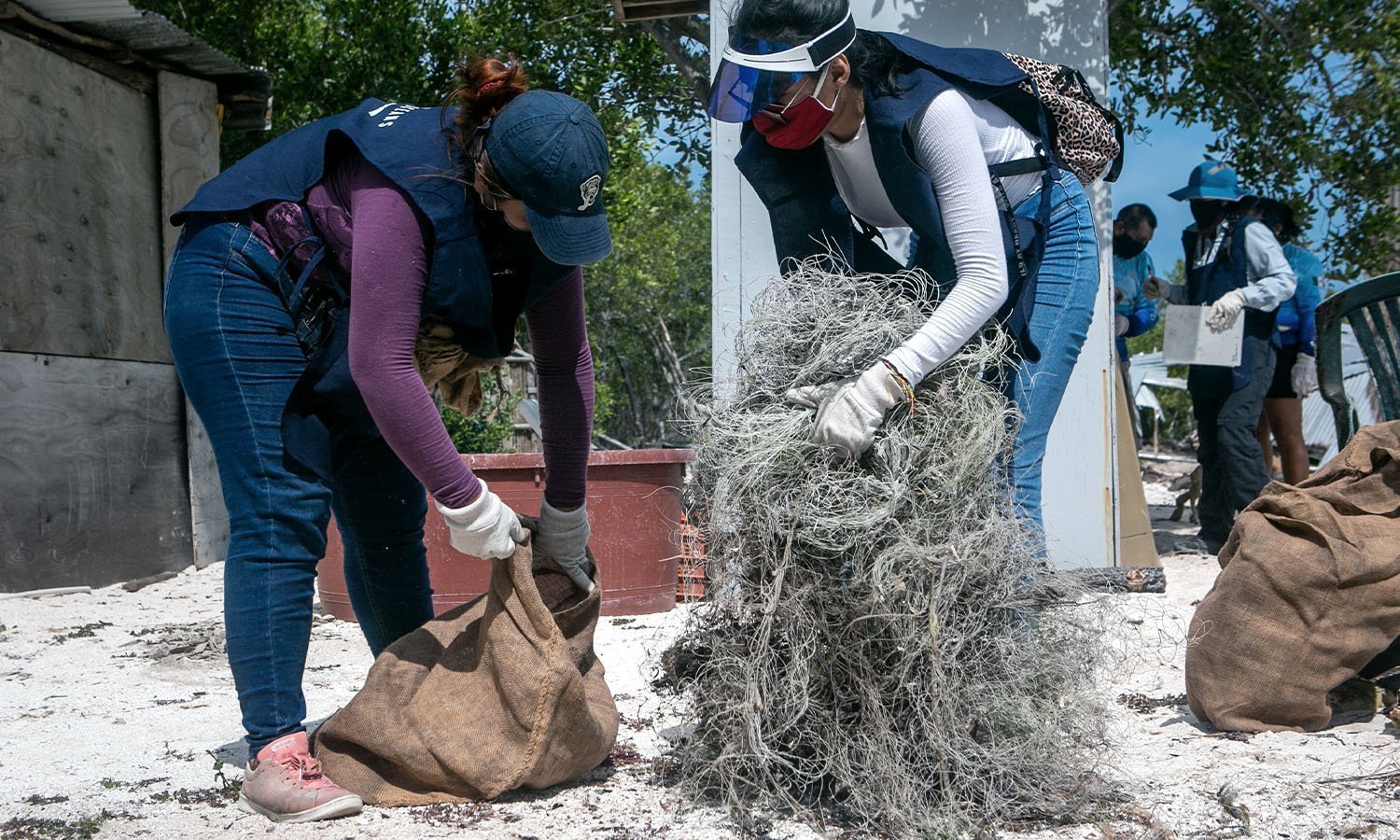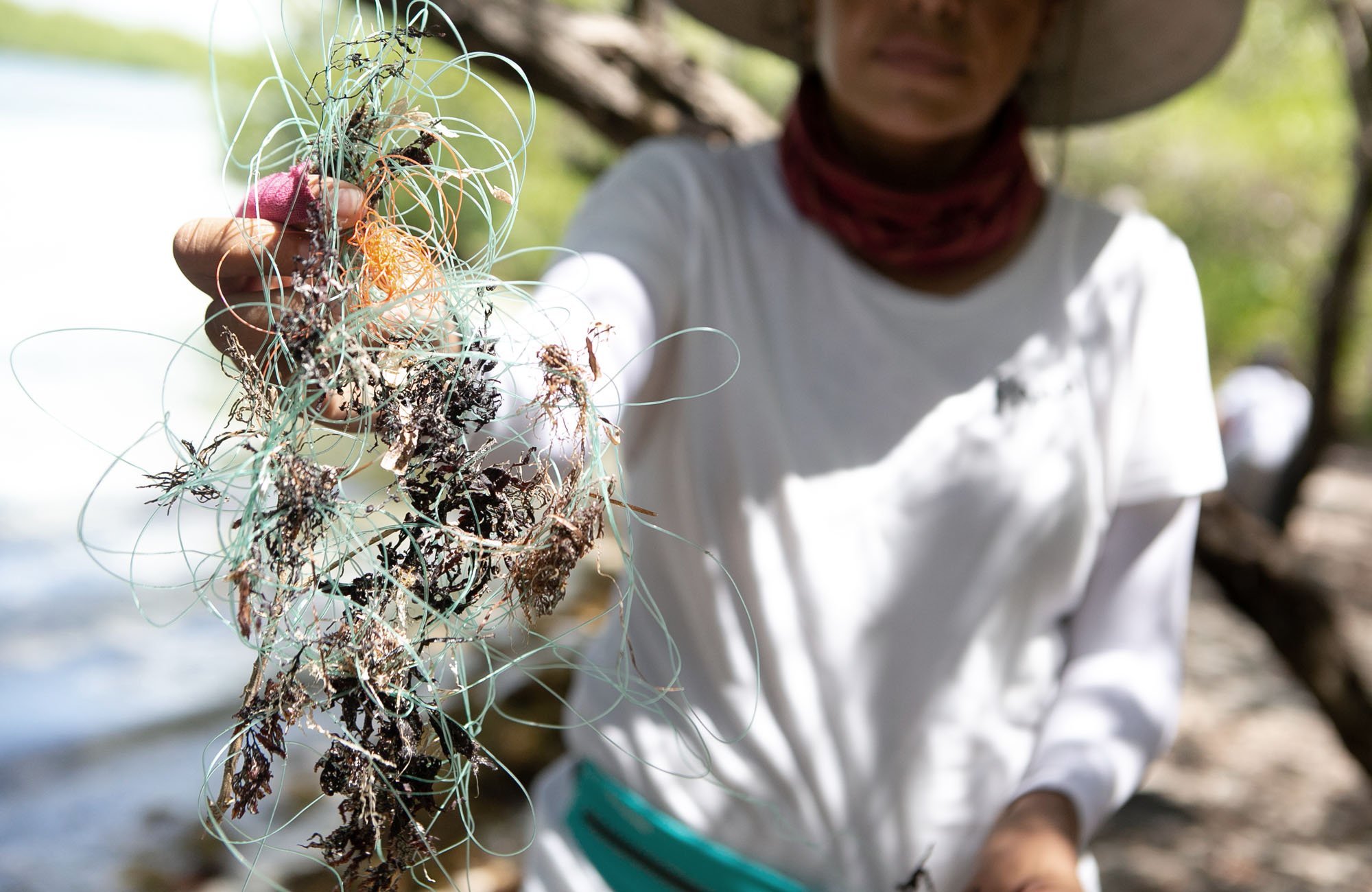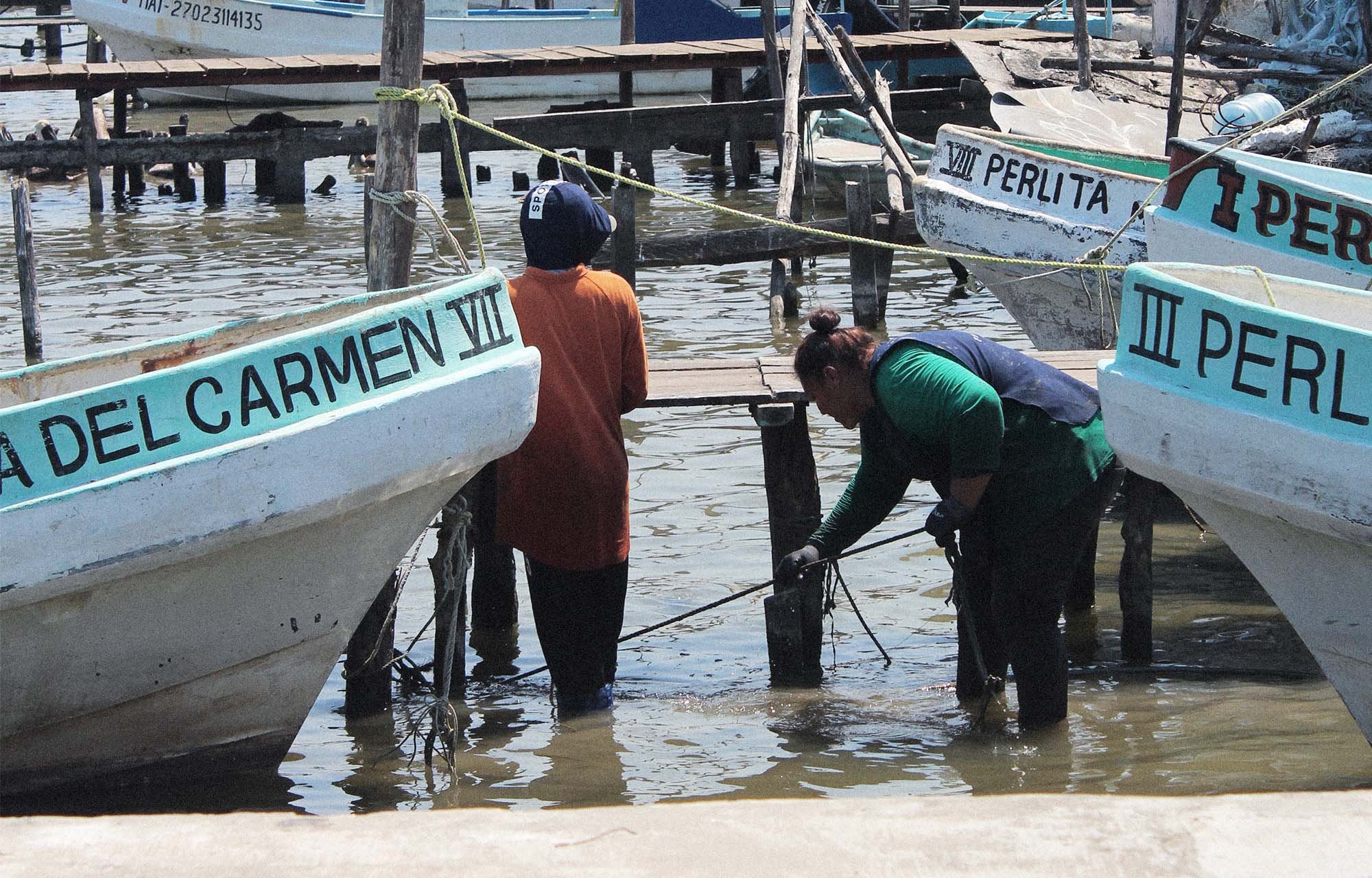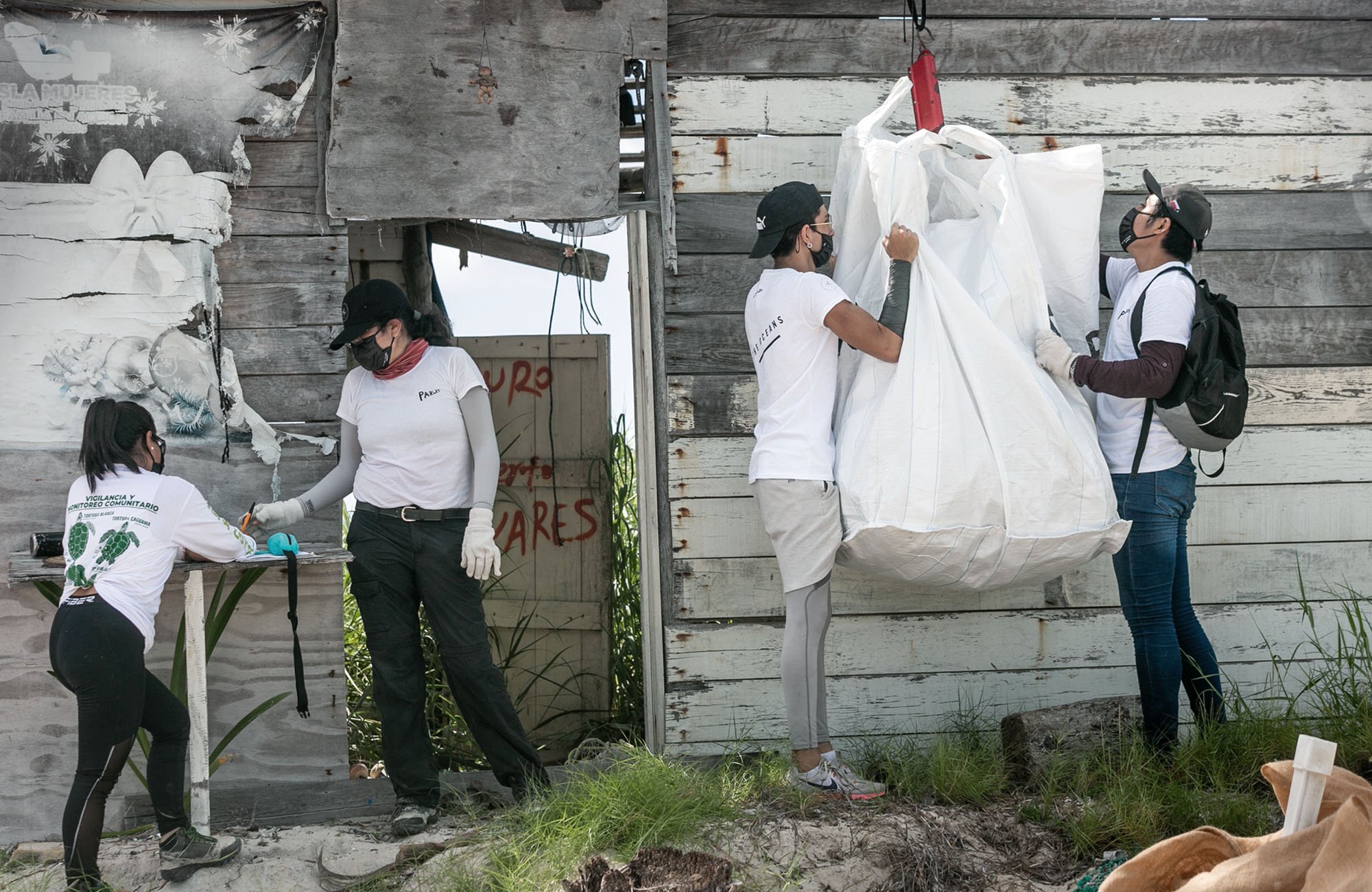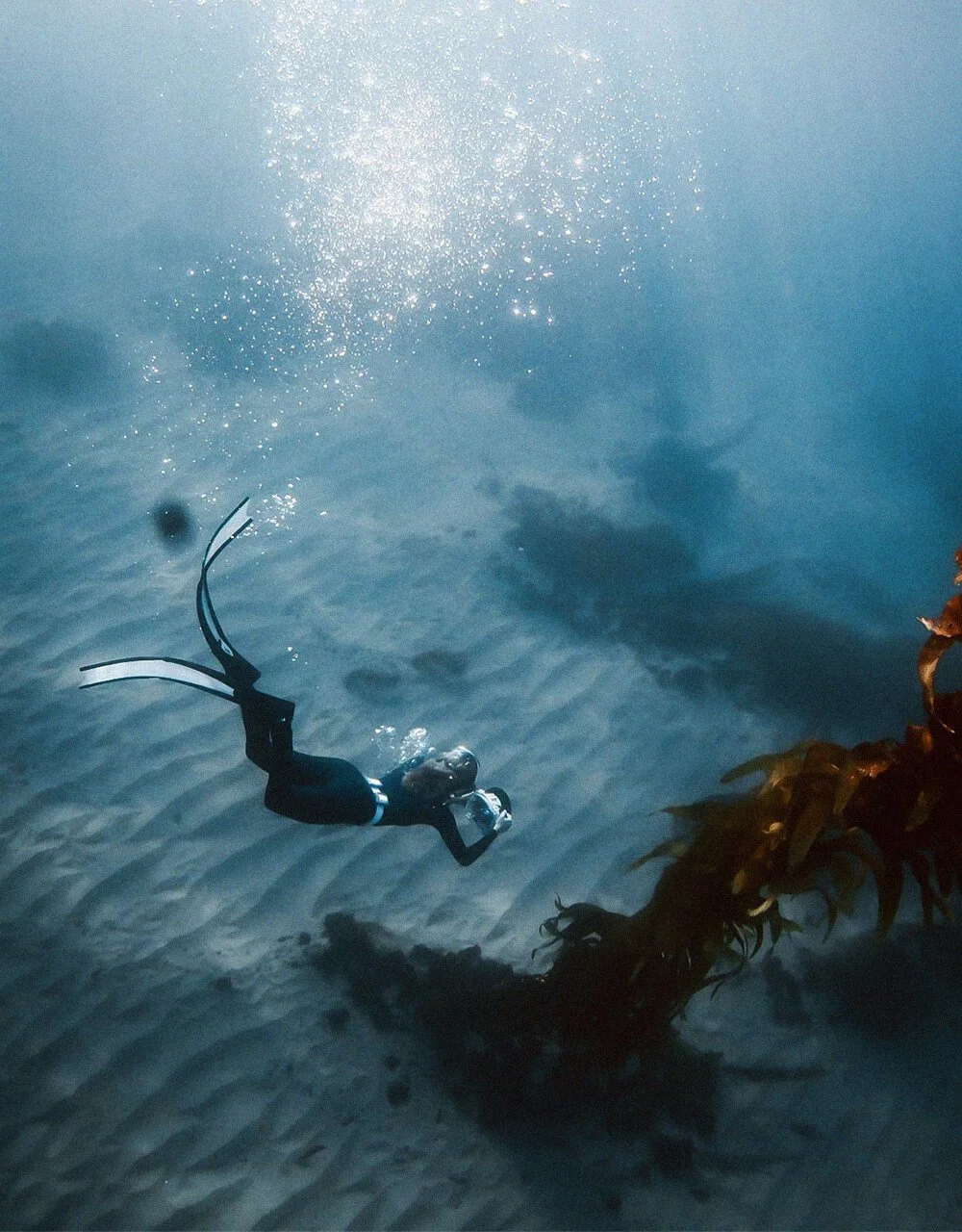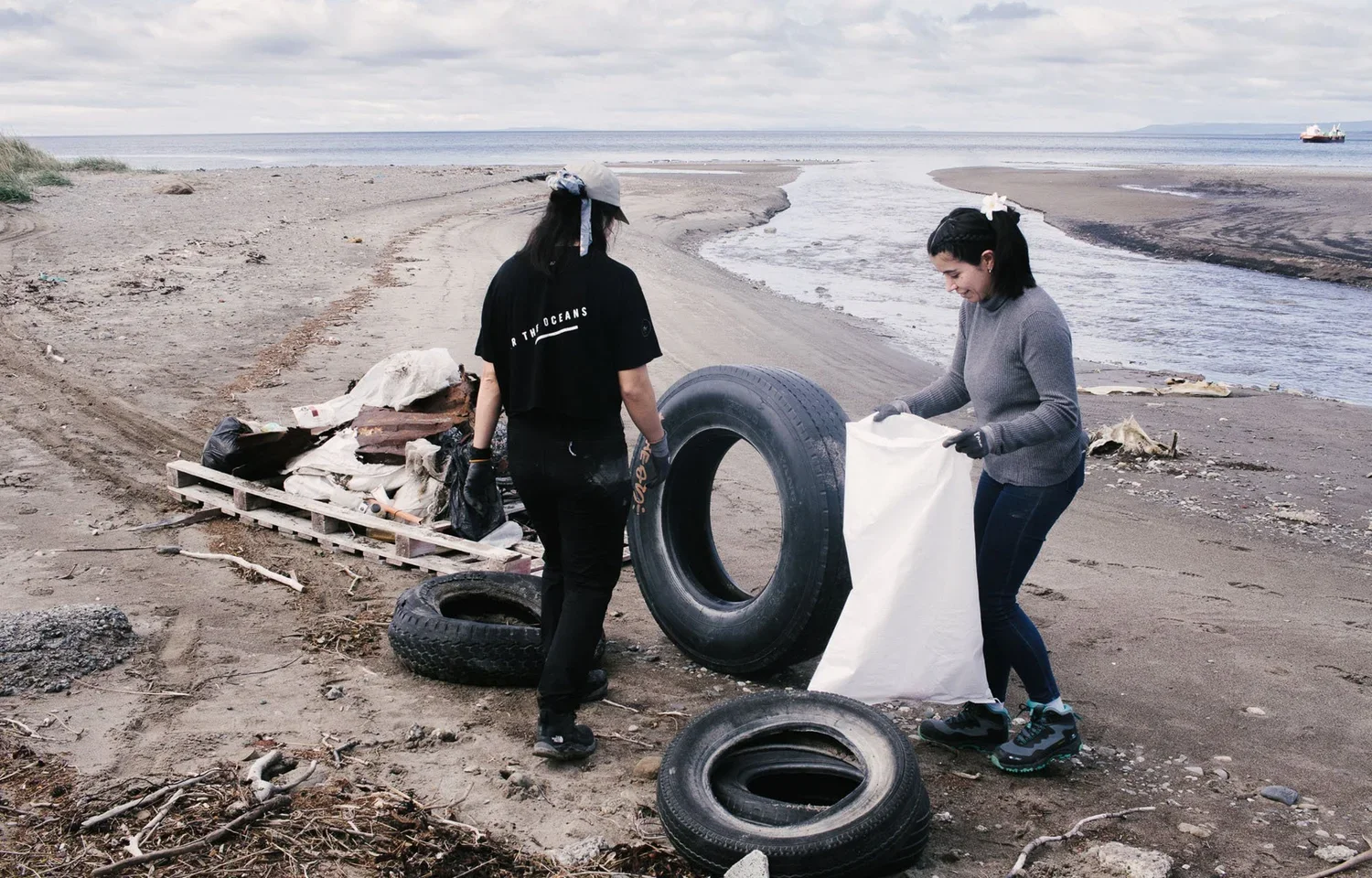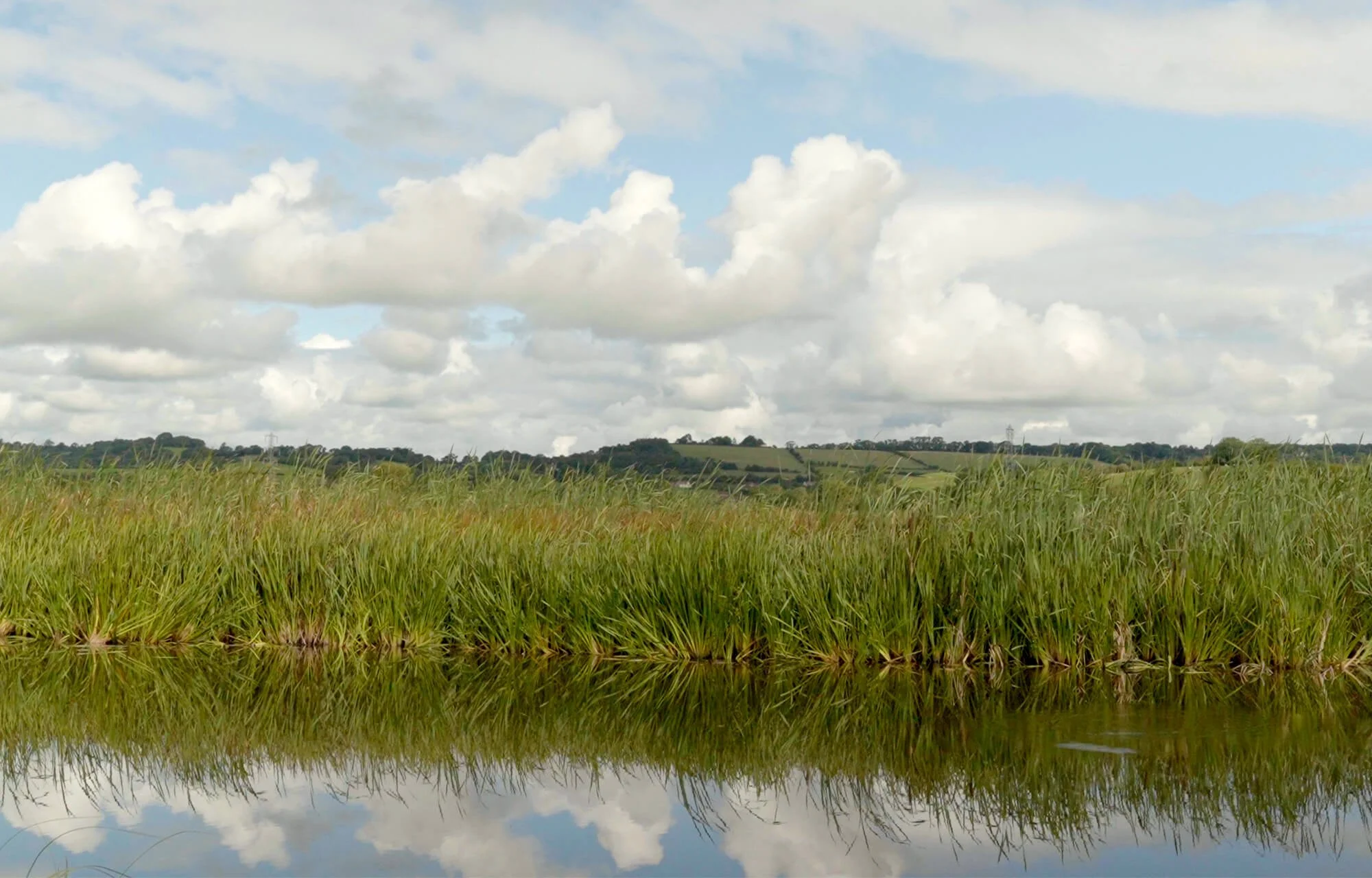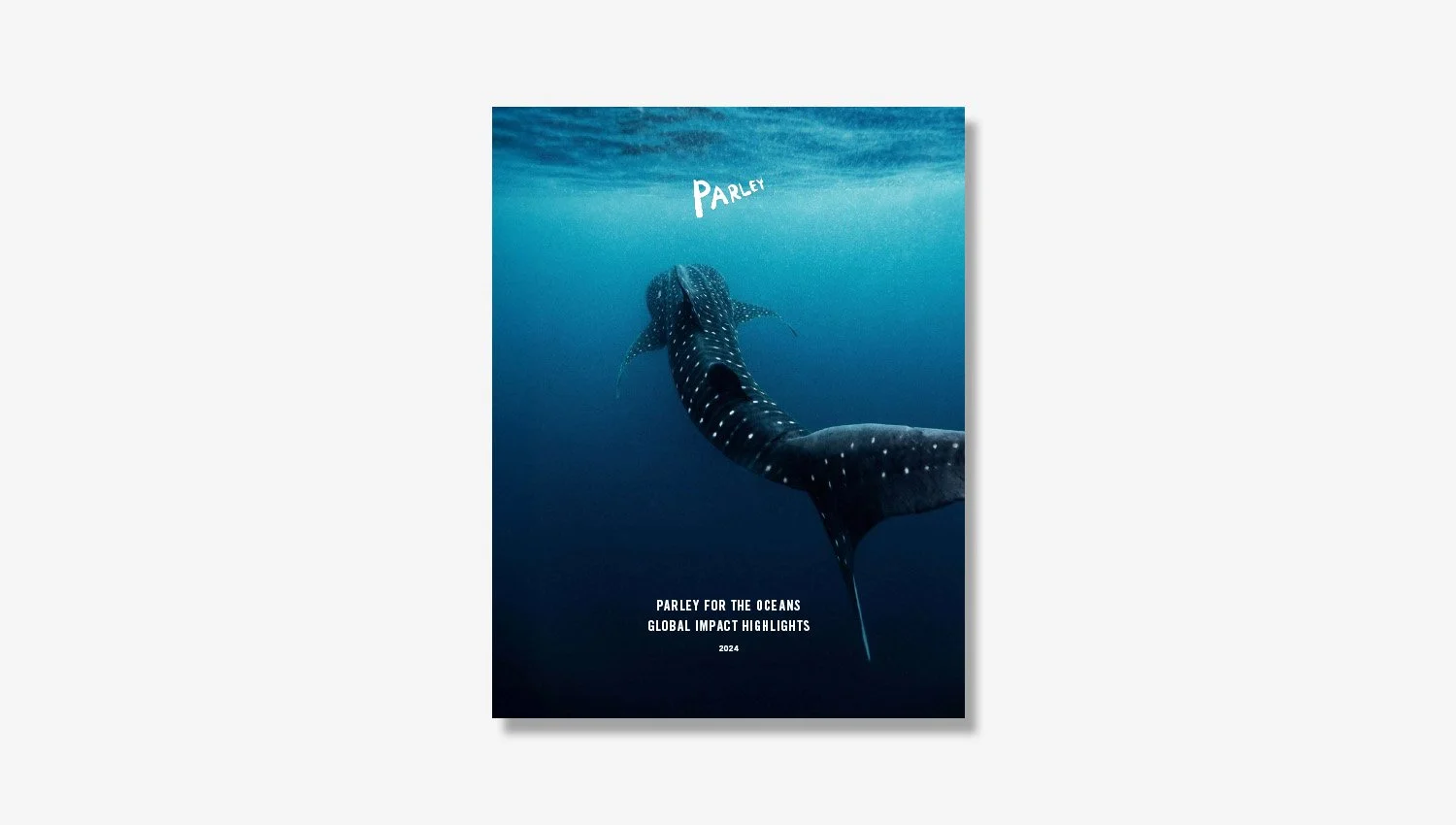COMBATING MARINE PLASTIC POLLUTION IN MEXICO
OUR AMBITIOUS COLLABORATION WITH THE NATIONAL OCEANIC AND ATMOSPHERIC ADMINISTRATION (NOAA) IS TACKLING MARINE PLASTIC DEBRIS ALONG MEXICO’S GULF AND Caribbean COASTS through A comprehensive PROGRAM GUIDED BY the parley air strategy
In the Gulf of Mexico and the Caribbean Sea, marine plastic debris from fishing and inland communities in Mexico is a major source of coastal and ocean pollution. This debris not only impacts the environment, wildlife and economy of Mexico, but also affects the seas, coastlines and marine resources of the United States and other neighboring nations.
Working with NOAA, Parley Mexico is addressing key issues in the region by implementing our AIR Strategy (Avoid, Intercept and Redesign) on a massive scale. The Parley AIR Marine Debris Mitigation Initiative is creating comprehensive solutions to prevent derelict fishing gear from entering the Gulf of Mexico and Caribbean waters and to remove existing marine debris from critical habitats in the region – creating a better coastal and marine environment for locals, visitors, wildlife and regional neighbours.
To date, the project has implemented a comprehensive fishing gear collection system in 16 fishing communities and has introduced a new solution for recycling nylon fishing nets to prevent them from becoming entangled in marine and coastal ecosystems. To address existing marine debris, the project has organized cleanups in 17 Natural Protected Areas and counting – with a specific focus on sea turtle nesting sites and sensitive mangrove areas. The areas covered include 11 sites listed as Wetlands of International Importance, one UNESCO World Heritage Site and five sites designated as UNESCO Biosphere Reserves.
During early cleanup campaigns and remote island surveys led by Parley Mexico, fishing debris emerged as a major ocean threat. All along Mexico’s Gulf coast, at 21 different sites, Parley teams found that lost and abandoned fishing gear – mainly traps, passive nets and plastic bait – accounted for a significant volume of the total marine waste surveyed. This plastic pollution has potential negative effects on the oceans, coastal ecosystems and eventually human health, due to microplastics entering marine food webs. Plastic particles, besides causing direct damage to marine and terrestrial species, are prone to transporting other pollutants present in the water.
“Coordinating operations in the field has presented many challenges and benefits for the NPAs and local communities – as expected Considering the Gulf of Mexico and Mexican Caribbean have 3,294 km of coastline. Local authorities, communities and fishers have generally engaged positively with this initiative and are eager to continue the cleanups and lost fishing gear collection tournaments THAT started with this project.”
Kim Ley-Cooper, Parley Mexico
FROM SEA TO SHOPS
One of the most ambitious aspects of the Parley AIR Marine Debris Mitigation Initiative is the installation of specialized machinery to transform nylon nets and other fishing debris into upcycled plastic to create new products. By transforming end-of-life nets and fishing gear into high-value consumer goods, Parley’s local partners can reinvest the proceeds into further conservation efforts.
“By shipping high-tech components across the Pacific from Asia by boat, we managed to bring innovative new technology to Mexico,” explains Parley Mexico’s Kim Ley-Cooper. “We first installed the fishing net recovery machinery at INPLARSA, our upcycling partner. This machinery takes sorted nylon nets and flakes them – a specialized process that is a first in the region. The flakes can then by transformed into pellets by other machines, with possible upcycled product outcomes like sunglasses or Parley Ocean Plastic® yarn, which we are working on. There have been challenges in sourcing, importing and adapting the machinery, but it is now up and running in Mexico.”
Upcycling marine plastics is a key objective of the project, which seeks to reduce marine waste and promote a circular economy. The ultimate goal is to convert marine debris into consumer products, minimizing waste and generating value that can be reinvested into ocean cleanup initiatives. As Kim concludes, “with the pathway now established, the next step is to scale up operations.”
60,271 pounds of fishing gear INTERCEPTED
8,377 poundS upcycled
OVER 4,000 ACTIVE volunteers
12,645 acres of COASTAL habitat PROTECTED
48,000 people REACHED
Over 1,300 fishers directly involved
Awareness and Education
Another important component of the project has been engaging with underserved fishing communities to build awareness of marine debris impacts, provide public information on reducing the use of plastic in households and promote better waste management practices across Mexico – from the northern border with the USA in Tamaulipas to the southern border with Belize at Xcalak.
The Parley AIR Marine Debris Mitigation Initiative aims to raise awareness about marine debris and encourage behavior change, particularly among youth and fishing communities. While education alone isn’t a complete solution, it’s a crucial first step. The program focused on community engagement through workshops, tournaments and diverse educational tools, emphasizing the impacts of plastic on health and the environment.
Key activities included interactive workshops, cleanup talks, community meetings and discussions about ocean diversity and pollution. Engaging fishing cooperatives before and after activities was essential for feedback and inclusion. Overall, the project successfully shifted perceptions and increased community involvement in addressing marine pollution.
CLEANING UP AND COLLABORATING
During the course of the NOAA collaboration, our teams have executed over 130 cleanups in partnership with the private sector, government agencies, regional entities, other NGOs and the general public. Their efforts have resulted in more than 100,000 lbs of debris removed from coastal environments, including lost and abandoned nets and fishing gear. There has been a wide participation of fishing communities, local tour companies, schools and authorities, since cleanups become a good community bonding activity.
The Parley Mexico team, their partners, local fishing communities and creative activists have all taken action to protect the oceans by collecting marine debris and lost, discarded and abandoned fishing gear in an innovative way: Parley Mexico Fishing Gear Collection Tournaments. These community-focussed events were created and established as a strategy for preventing abandoned fishing gear, ghostnets and microplastics from further polluting marine ecosystems. A healthy competitive atmosphere to gather the most debris generates momentum and a broad public participation of all age ranges. Since the event is not limited to fishers, the whole community often gets involved. At the end of the day, people gather together and prizes are awarded to the top teams – an opportunity for a social gathering that celebrates the end of the working day, where food is shared and where music and other fun activities can take place. In some places like San Pedro Tabasco, part of the “Pantanos de Centla” Biosphere Reserve, the initiative was mainly led by groups of women who were keen to keep cleaning the environment and organizing future tournaments.
In other NPAs, programs saw the wide participation of the youth and University Students from Universidad del Caribe, Anahuac and public volunteers amongst others. In the most remote areas, fisher families and CONANP authorities were the main partners since access to mangrove areas is limited. Inaccessible by road, some of these ecosystems can only be reached boat, and sometimes only for the purpose of research and ecosystem remediation. In many cases special permits were required, such as in Isla Contoy and the Puerto Morelos reef, where large quantities of ghost nets were recovered.
To date, the Parley AIR Marine Debris Mitigation Initiative has intercepted 60,271 pounds of fishing gear and upcycled 8,377 pounds of that. We’ve had over 4,000 volunteers join our programs, helped protect 12,645 acres of habitat and reached at least 48,000 people, including more than 1,300 fishers directly involved. In the years to come, the team hopes to build on this success and expand the scale of the project – for Mexico, and #fortheoceans.
“This project has enabled CONANP and other local authorities to collaborate with PARLEY in a beneficial cause against plastic pollution, mitigating Marine Debris and ghost fishing gear to help out with costly field operations which require a lot of effort, coordination for logistics and operations – a complicated task in remote Protected Areas.”
Yadira Gomez – Regional Director of Operations, CONANP


